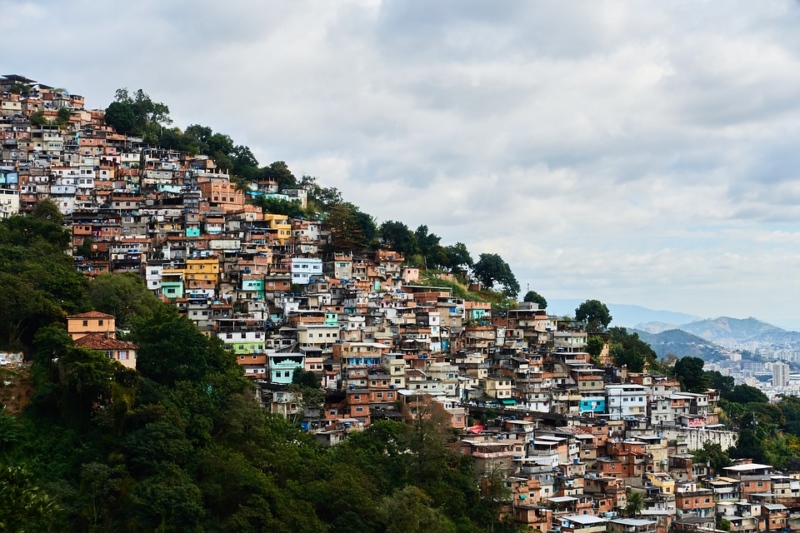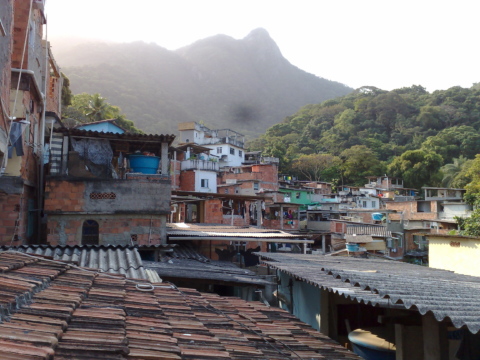Measuring Discrimination: Race and Data in Brazil
Though racial equality is improving in Brazil, there is significant room for progress.
A Daily Publication of The Dialogue
“Covid-19 will not be color- or race-blind in Latin America,” the World Bank said in a report last month. Afro-descendants are overrepresented among slum dwellers in Brazil, Colombia and many other countries, and infection and death rates will almost certainly be higher for Black Latin Americans than for white ones, much as in the United States, the authors noted. How is the pandemic affecting Afro-descendants in the region differently from other groups, and what can authorities do to provide more equitable treatment? What challenges face Afro-descendant communities in the economic recovery, and what practices have proven successful in overcoming long-standing obstacles to Black people obtaining better job opportunities in the region? What can private sector employers in the region do to have a bigger role in the labor-market solution?
Judith Morrison, senior advisor for social development in the Gender and Diversity Division at the Inter-American Development Bank: “Preliminary evidence shows that Covid-19 disproportionately affects the 150 million African descendants in Latin America, or 30 percent of the region’s population. Reports from state and municipal governments indicate that Afro-descendants may have coronavirus mortality or incidence rates three to eight times higher than the population as a whole. However, the lack of quality disaggregated data by race and ethnicity makes it challenging to truly define the magnitude of the problem. Statistics on race and ethnicity need to be improved in order to address the persistent gaps. We can only design policies and measure success if we are able to quantify the degree of poverty and exclusion of the most vulnerable populations. Despite the challenges of Covid-19, recent gains made by African descendants in some sectors of the labor market may be sustainable. Due to university inclusion policies, Black people have recently experienced an increase in college graduation rates in countries such as Brazil, Peru and Uruguay. Additionally, initiatives such as Talento Total in Colombia and Brazil strengthen the pipeline of emerging business leaders by improving access to the most prestigious business schools. Recently hired graduates are particularly susceptible to layoffs. However, we have increasingly seen an emerging role for the private sector in these challenging times with promising examples of corporate leadership promoting racial equality. International commitments by multinational corporations on diversity have resonated in the region, and members of corporate networks such as the Business Coalition for Race and Gender Equity in Brazil have engaged in practical dialogues to design policies to retain a diverse work force and diversify supply chains during the pandemic and beyond.”
Gladys Mitchell-Walthour, associate professor of public policy and political economy in the Department of African and African Diaspora Studies at the University of Wisconsin-Milwaukee: “Afro-descendants in Latin America are suffering at disproportionate rates compared to European descendants. Brazil currently leads Latin America in Covid-19 infections. Worldwide, Brazil’s number of infections is the second highest after the United States. Dalila Negreiros, in a report to the Office of the United Nations High Commissioner for Human Rights, notes that the number of infections and deaths are not accurate in Brazil, which makes it difficult to analyze the impact on Afro-descendants in the country. Afro-descendants are more likely to die from the disease than white Brazilians due to social determinants of health and pre-existing conditions, such as heart disease and diabetes. Social determinants include where people live and their access to clean water. In March, the Bolsonaro administration released a video encouraging Brazilians to continue working. Many Afro-Brazilians were featured, including jobs in which people are more susceptible to the disease. Street vendors in Brazil and throughout Latin America are more vulnerable to the disease as they are exposed to a variety of people. Many low-income Afro-descendants are unemployed and cannot afford food and hygiene products. Unfortunately, when there is an economic recovery, private-sector jobs that require high skill levels will have little impact on the most vulnerable Afro-descendant populations, such as domestic workers and those engaged in informal work. Yet quota programs in employment could ensure that Afro-descendant university graduates are equally likely to be employed as their white counterparts, which is currently not the case.”
Raymond A. Joseph, former ambassador of Haiti to the United States: “Not unlike what’s happened in the United States, the pattern whereby Covid-19 disproportionately affects Black people in other parts of the hemisphere results from centuries-old precedents stemming from the slavery system in the New World, which fueled European economies. When the Haitian revolutionaries first triumphed over their slave masters in 1803, the enslaving powers declared a decades-long embargo, ruining the economy of the new nation, and extorted reparations for properties lost, including slaves. But a liberation movement was launched in Latin America, with Simón Bolívar obtaining help from Haiti and sailing from Haiti in 1813 to go liberate a large swath of Latin America. Haitian President Alexandre Pétion only asked the Libertador to free the slaves wherever he succeeded. But at Bolívar’s first Panama Congress in 1826, to thwart Spain’s plan of reconquest and to usher in Pan-Americanism, the slave-owning United States objected to the presence of Haitians. However, the United States, slave-owning Britain and the Netherlands were invited. Britain abolished slavery in 1833, and Brazil would do so in 1888. Though technically free, the former slaves continued to labor, with little pay, to keep white-dominated economies humming. However, generally, Black people have been deprived of good education and health care. For the most part, they’re confined to areas that have become sprawling ghettos, such as the favelas of Brazil. It’s telling that in Britain’s former Caribbean colonies where Black people assumed political leadership, the pandemic has been somewhat muted. Not so in countries that were under Spanish or Dutch rule, where Black people have been barred from such leadership. Even in Brazil, where 2018 census statistics put Black people in the majority, they make up less than a quarter of the members of Congress. Until there’s general inclusion in the economic, educational and political realms, as well as parity in labor relations, leading to a fairer distribution of wealth, Black people will continue to disproportionately suffer the effects of any pandemic.”
Maria Velez de Berliner, managing director of RTG-Red Team Group, Inc.: “Afro and Indigenous communities continue to receive what Latin America’s governments have historically given them: appalling neglect of their needs for housing, health care, education, hygiene and the basics for human living conditions. Covid-19 caught those governments unprepared to meet growing demands for hospitals, intensive care units, respirators, masks, disinfectants and other personal protective equipment—even for doctors and health care professionals. Covid-19 struck when countries such as Colombia, Peru, Chile, Bolivia, Nicaragua, Argentina and Mexico were besieged by work stoppages and demonstrations driven by justified claims for economic equity and opportunity. Covid-19’s necessitated lockdowns across the board led to high unemployment in every country. Governments and a few large private companies, particularly in Colombia, continue to work together to stem the spread of Covid-19, with limited success due to current spikes caused by the staggered reopening of economic activity. Combining the historic neglect of Afro and Indigenous communities with the collateral damage of Covid-19, the best private industry can do is expand its collaboration with governments to help contain the spread of Covid-19 within neglected communities and try to assuage the pain associated with illness, death, hunger and destitution. It is heartbreaking that communities accustomed to neglect now have to suffer even more. Criminal organizations in Chocó in Colombia, Brasilândia in São Paulo and favelas in Rio de Janeiro are the ones providing services and care that governments don’t have the resources to provide. Governments will have to deal with the ravages of Covid-19 and with the deeper entrenchment of criminal organizations in neglected communities, which augurs a dangerous future for Latin America.”
 The Latin America Advisor features Q&A from leaders in politics, economics, and finance every business day. It is available to members of the Dialogue’s Corporate Program and others by subscription.
The Latin America Advisor features Q&A from leaders in politics, economics, and finance every business day. It is available to members of the Dialogue’s Corporate Program and others by subscription.
Though racial equality is improving in Brazil, there is significant room for progress.
Este livro traz uma reflexão sobre as desigualdades raciais contidas nos indicadores de escolarização da população brasileira. Na verdade, dentro do atual estado-da-arte do debate sobre o tema dos indicadores educacionais de nosso país já existe uma plena compreensão sobre as pronunciadas assimetrias presentes em termos do acesso e permanência…
Fiscal policy played an important role in reducing poverty and inequality in Brazil (Higgins and Pereira, 2014) over the last fifteen years, but how much redistribution and poverty reduction is being accomplished across ethnic groups?
 Afro-descendants in Latin America are being hit particularly hard in areas including the favelas of Rio de Janeiro. // File Photo: pixabay.com.
Afro-descendants in Latin America are being hit particularly hard in areas including the favelas of Rio de Janeiro. // File Photo: pixabay.com.
